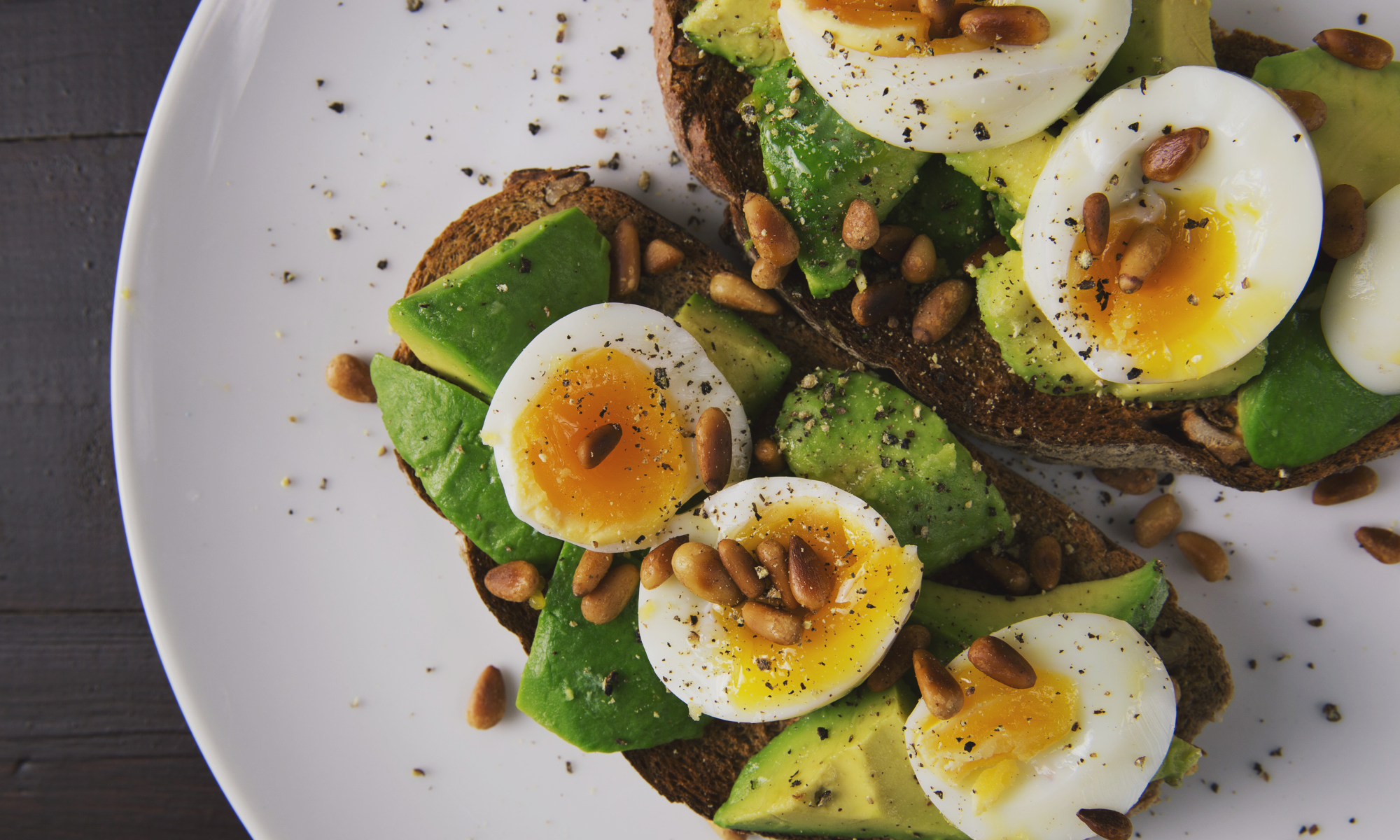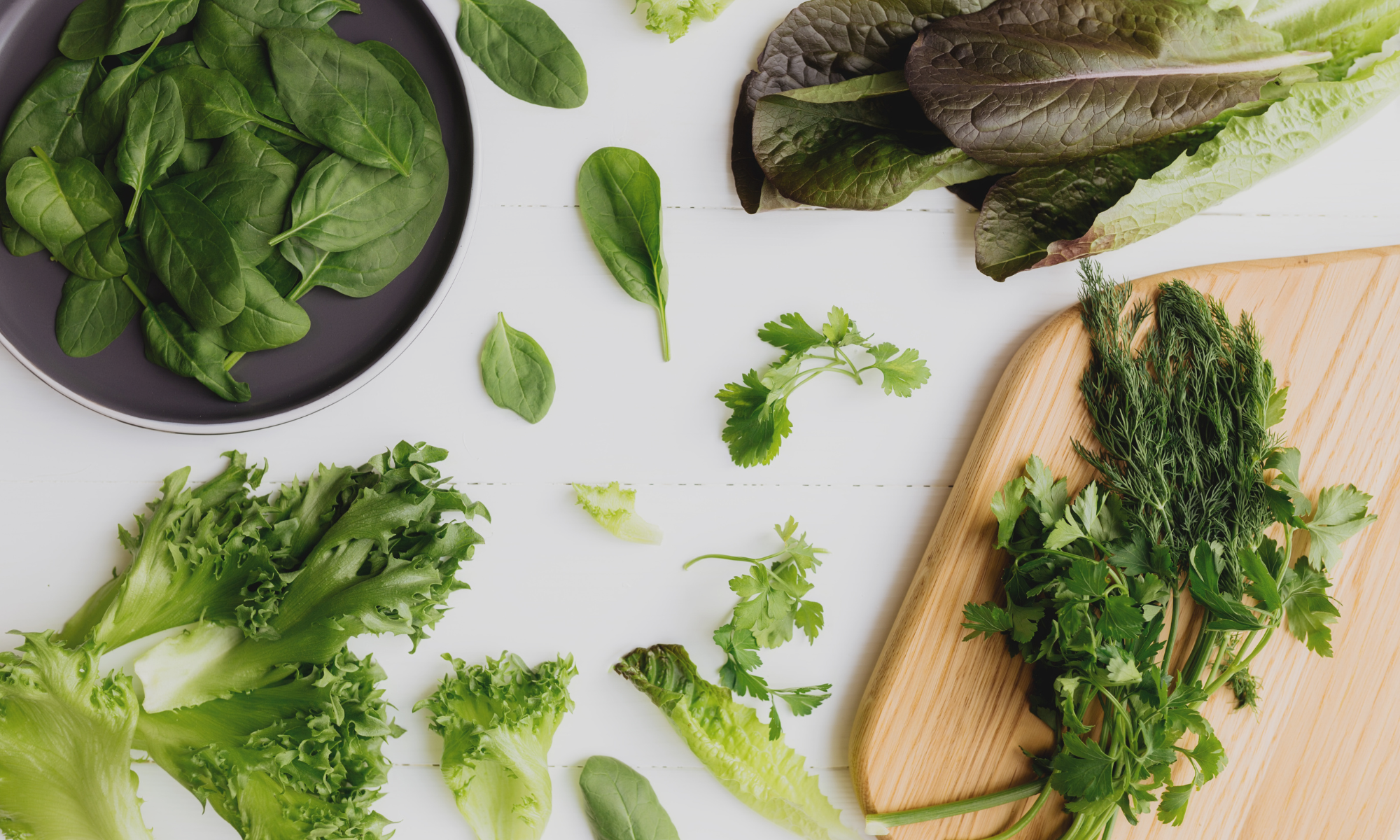18 Best High-Protein Foods for a Healthy Diet

KEY TAKEAWAYS
- Protein is essential for building muscle, repairing tissues, producing enzymes and hormones, and keeping you satisfied after meals. It’s a cornerstone of a healthy diet.
- Aim for at least 0.8 g of protein per kg of body weight per day (around 50–60 g for most adults) as a general guideline. Increase this amount if you are very active, older, or looking to build muscle, according to your individual needs.
- High-protein foods include lean meats (chicken, turkey, lean beef), fish and seafood (salmon, tuna, shrimp), eggs, dairy (Greek yogurt, cottage cheese), and plenty of plant-based options (lentils, beans, tofu, tempeh, edamame, quinoa, nuts, seeds). A balanced mix of these foods can help you easily meet your protein goals.
- Eating more protein can aid weight management by boosting fullness and reducing cravings. High-protein diets have been shown to preserve muscle during weight loss and naturally encourage fewer calorie intakes – a win-win for fat loss and metabolic health.
- Personalized nutrition is key: the “best” protein intake and sources can vary per person. It’s important to integrate protein into an overall healthy eating pattern that fits your lifestyle. Consider consulting nutrition experts (like the team at Roots Nutrition) to tailor your protein intake for your specific health and wellness goals.
According to research, people who followed a high-protein diet lost 53% more body fat than those on a standard protein diet with equal calories. It’s no wonder protein has earned its reputation as a powerhouse nutrient. Whether you’re looking to build lean muscle, lose weight, or simply feel fuller with healthier meals, prioritizing protein is key. In this comprehensive guide, we’ll explain why your body needs protein, how much you should get daily, and highlight 18 of the best high-protein foods to fuel a healthy diet. Let’s dive into how protein can transform your nutrition and wellness.
Why We Need Protein

Protein isn’t just for athletes or bodybuilders. It’s for everyone. In fact, protein is a building block of every cell in your body, used to create muscles, skin, enzymes, hormones, and other vital molecules. Protein is essential for life, playing a critical role in growth, development, and tissue repair. Every time your body builds or fixes something, like healing a cut to regenerating muscle fibers, it relies on amino acids from protein.
Equally important, protein helps you function at your best each day. This macronutrient supports a strong immune system, maintains muscle mass (especially as you age), and even contributes to bone health. High-protein foods are also known to increase satiety, meaning they keep you feeling full longer than foods rich in carbs or fats. This can curb unhealthy snacking and stabilize your energy levels. In short, getting enough protein is crucial for building and repairing tissues, sustaining energy, and managing appetite.
How Much Protein Should You Have a Day?

Nutrition experts offer clear guidelines. Most adults should aim for about 0.8 grams of protein per kilogram of body weight per day. In practical terms, that means roughly 50–60 grams of protein daily for an average adult (around 140–165 pounds). For example, a 150-pound (68 kg) person would have a minimum target of about 55 grams of protein per day.
Keep in mind this recommendation is a general baseline for a healthy diet. Your individual protein needs may be higher if you’re very active, pregnant, nursing, or looking to build muscle. Many athletes and older adults benefit from 1.2–1.6 g of protein per kg of body weight to support muscle repair and prevent age-related muscle loss. It’s also helpful to spread your protein intake throughout the day. Include some protein at each meal and snack to optimize absorption and keep you feeling satisfied. Ultimately, listen to your body and consider consulting a nutrition professional to personalize your protein intake.
Foods High in Protein
When it comes to choosing protein, quality and variety matter. Here are 18 of the best high-protein foods you can enjoy as part of a healthy diet, each with an action-oriented intro, key benefits, and an impactful takeaway to help you remember why it’s great.
1. Eggs
Kickstart your morning with eggs, a protein-packed breakfast staple that’s versatile and easy to prepare. One large egg provides about 6 grams of high-quality protein, including all nine essential amino acids your body can’t make on its own. Eggs are also rich in vital nutrients like vitamin B12, vitamin D, and choline, which support metabolism and brain health. Enjoy them boiled, scrambled, or in an omelet loaded with veggies for a satisfying meal at any time of day.
Takeaway: Eggs are an affordable, nutritional powerhouse that help build muscle and keep you full, making them an egg-cellent start to your day!
2. Chicken Breast
Build lean muscle with chicken breast, one of the leanest, most concentrated protein sources available. A 3-ounce (85g) serving of skinless chicken breast packs around 25–27 grams of protein, with very little fat and zero carbs. This lean poultry is also a great source of B vitamins and minerals like zinc, which aid in energy production and immunity. Grill, bake, or stir-fry chicken breast and pair it with vegetables and whole grains for a balanced, muscle-friendly meal.
Takeaway: Chicken breast is a lean protein champion – low in fat, high in protein, and perfect for healthy meals that support muscle growth.
3. Turkey Breast
Choose turkey breast for a lean protein punch and variety in your diet. Like chicken, turkey is loaded with protein (about 24 grams per 3 oz) and minimal fat, but it offers a slightly different nutrient profile. Turkey is rich in selenium (important for thyroid and immune function) and tryptophan (an amino acid that supports mood and sleep). It’s a flavorful alternative to red meat—think turkey slices in a sandwich or roasted turkey tenderloin.
Takeaway: Turkey breast is a lean, nutrient-dense protein that can easily replace higher-fat meats, helping you build strength while keeping saturated fat low.
4. Lean Beef

Power up with lean beef to get protein plus iron for energy. Lean cuts of beef (such as sirloin, tenderloin, or 93% lean ground beef) deliver roughly 22–26 grams of protein per 3-ounce serving, along with heme iron, which is highly absorbable and helps prevent iron-deficiency anemia. Beef is also a top source of vitamin B12 and zinc, supporting red blood cell production and immune health. Opt for grilled or broiled lean steak, or add extra-lean ground beef to chili or salads in moderate portions.
Takeaway: Lean beef provides a high-protein boost along with iron and B vitamins (nutrients that help maintain energy levels and a healthy blood count).
5. Salmon
Get more than just protein by enjoying salmon, a nutritious fish rich in heart-healthy fats. A 4-ounce (113g) salmon fillet offers around 22–25 grams of protein, along with a generous dose of omega-3 fatty acids (EPA and DHA). These omega-3s support heart, brain, and joint health, making salmon a superstar food. Salmon is also high in vitamin D and potassium. Bake or pan-sear salmon and serve it with roasted veggies for a filling, wholesome dinner.
Takeaway: Salmon is a two-for-one powerhouse: high in protein to fuel your muscles and loaded with omega-3s that benefit your heart and overall health.
6. Tuna
Fuel up with tuna, a convenient high-protein food perfect for meals or snacks. Whether you choose fresh tuna steak or canned tuna, you’ll get a hefty protein dose with very little fat. One 5-ounce can of tuna provides about 25–30 grams of protein, making tuna salad or tuna steaks an easy way to hit your protein goals. Tuna is also a good source of B vitamins and selenium. Opt for tuna canned in water to keep it lean, and mix it with Greek yogurt or avocado instead of mayo for a healthier twist.
Takeaway: Tuna is an excellent high-protein, low-fat choice that’s easy to incorporate into lunches and snacks, keeping you full and energized.
7. Shrimp
Enjoy shrimp for a lean seafood protein that’s low in calories. A 3-ounce (85g) serving of shrimp provides about 18–20 grams of protein and barely any fat. Shrimp are also a source of important nutrients like selenium, vitamin B12, and iodine (needed for thyroid function). They cook in minutes, making them perfect for quick stir-fries, pastas, or grilled skewers. Because shrimp are so lean, you can add healthy fats (like olive oil for sautéing or avocado in a salad) to round out your meal.
Takeaway: Shrimp pack high-quality protein with very few calories, making them ideal for a lean, healthy diet that doesn’t skimp on nutrition.
8. Greek Yogurt

Spoon up Greek yogurt for a protein-rich snack that also supports gut health. A typical 6-ounce (170g) container of non-fat Greek yogurt contains 15–18 grams of protein, about double the protein of regular yogurt. Greek yogurt is strained, which concentrates its protein (mostly casein, a slow-digesting type) and makes it extra creamy. It’s also high in calcium for bone health and often contains probiotics that aid digestion. Enjoy Greek yogurt plain or topped with fruit and nuts, or use it as a high-protein substitute for sour cream in recipes.
Takeaway: Greek yogurt is a versatile protein MVP. Iit delivers lots of protein, calcium, and probiotics in one creamy, convenient package, perfect for breakfast or snacks.
9. Cottage Cheese
Curb hunger with cottage cheese, a mild-tasting dairy product packed with casein protein. Just half a cup of cottage cheese typically provides about 12–14 grams of protein, for relatively few calories. It’s rich in casein, a slow-releasing protein that supplies your muscles with amino acids over several hours – great for satiety and overnight muscle repair. Cottage cheese also offers calcium, selenium, and B vitamins. Enjoy it as a savory snack with cucumber and tomato, or add a bit of fruit and cinnamon for a sweet twist.
Takeaway: Cottage cheese is a protein-packed and filling option to keep cravings at bay – an ideal evening snack to help your muscles recover while you rest.
10. Lentils
Go plant-powered with lentils, a vegetarian protein staple loaded with fiber. One cup of cooked lentils contains about 18 grams of protein, plus complex carbohydrates and around 15 grams of fiber. This winning combo means lentils not only help build tissue, but also support digestion and steady blood sugar levels. Lentils are rich in iron, folate, and magnesium, contributing to heart health and energy. Toss lentils into soups, curries, or salads for a hearty, meat-free protein boost.
Takeaway: Lentils are plant protein all-stars – high in protein and fiber, cholesterol-free, and budget-friendly, they nourish your body and keep you satisfied.
11. Chickpeas
Bulk up your meals with chickpeas (garbanzo beans), another excellent plant-based protein source. A cup of cooked chickpeas offers roughly 14–15 grams of protein, along with lots of fiber and slow-digesting carbs. Chickpeas are also packed with folate, iron, and phosphorus. This nutrient profile makes them wonderful for heart health and sustained energy. Blend chickpeas into hummus, roast them for a crunchy snack, or add them to stews and grain bowls.
Takeaway: Chickpeas provide a trifecta of protein, fiber, and nutrients, making your meals more filling and nutritious – a perfect choice for vegetarians and omnivores alike.
12. Black Beans

Support your muscles and your heart with black beans. Like other beans, black beans are rich in plant protein (about 15 grams per cup cooked), fiber, and antioxidants. Their deep color signifies high levels of anthocyanins, which are antioxidant compounds that may benefit cardiovascular health. Black beans also supply magnesium and potassium, important for muscle function and blood pressure regulation. Enjoy them in burrito bowls, black bean soups, or mixed with rice (a classic combo that provides all essential amino acids).
Takeaway: Black beans are a nutrient-dense protein source that not only helps build muscle, but also contributes to heart health and steady energy thanks to their fiber and micronutrients.
13. Tofu
Embrace tofu, a popular soy-based protein, as a versatile meat alternative. A 1/2-cup serving of firm tofu provides around 10 grams of protein and contains all nine essential amino acids, making it a complete plant protein. Tofu is low in saturated fat and also offers calcium, iron, and magnesium. Thanks to its mild flavor, tofu easily absorbs the taste of whatever you cook it with – from stir-fries and scrambles to smoothies. Choose extra-firm tofu for grilling or stir-frying, and silken tofu for blending into sauces or desserts.
Takeaway: Tofu is a plant protein chameleon: high in protein, low in fat, and ultra-flexible in recipes, it helps you meet protein needs while enjoying meatless meals.
14. Tempeh
Try tempeh for a protein source that’s as nutritious as it is unique. Tempeh is made from fermented soybeans pressed into a firm patty. A 3-ounce portion of tempeh supplies about 16 grams of protein, along with fiber and probiotics resulting from fermentation. Because it’s made from whole soybeans, tempeh has a chewy texture and a nutty, earthy flavor. It’s also rich in manganese, phosphorus, and iron. Use tempeh crumbled in tacos or grain bowls, or marinate and pan-sear it as a plant-based bacon or burger substitute.
Takeaway: Tempeh delivers high protein with bonus benefits. Its fermentation provides gut-friendly probiotics and a satisfying texture, making healthy eating both hearty and interesting.
15. Edamame
Snack on edamame, and you’ll load up on plant protein and fiber in one go. Edamame are young soybeans, often served still in the pod (just pop the beans out to eat). One cup of shelled edamame boasts around 17 grams of protein, rivaling many animal foods, plus 8 grams of fiber. Edamame beans are a complete protein and supply nutrients like folate, vitamin K, and magnesium. They make a fantastic snack with a sprinkle of salt or addition to salads, stir-fries, and pasta dishes.
Takeaway: Edamame are fun, tasty beans that offer a substantial protein boost. A perfect example that plant-based snacks can be both delicious and nutritionally powerful.
16. Quinoa

Swap in quinoa as a high-protein grain to upgrade your meals. Often called a “pseudo-grain” (it’s technically a seed), quinoa is unique among grains for its higher protein content and complete amino acid profile. One cup of cooked quinoa provides about 8 grams of protein, plus plenty of fiber, iron, and magnesium. It has a light, fluffy texture and mild, nutty taste. Use quinoa as a base for salads and bowls, or as a protein-rich side instead of rice. It’s also gluten-free, making it friendly for those with gluten sensitivities.
Takeaway: Quinoa is a nutrition-packed grain alternative. It contributes extra protein and key minerals to your diet, helping make even side dishes or salads more balanced and satisfying.
17. Almonds
Grab a handful of almonds for a quick protein boost and healthy fats. One ounce of almonds (about 23 nuts) contains around 6 grams of protein, along with vitamin E, magnesium, and heart-healthy monounsaturated fats. While nuts are calorie-dense, they’re very satiating; studies show incorporating almonds can help with weight management by controlling hunger. Enjoy almonds raw or roasted as a snack, sprinkle them on yogurt and oatmeal, or use almond butter in smoothies. The protein and fat combo will keep your energy levels steady between meals.
Takeaway: Almonds are a nutrient-dense protein source perfect for on-the-go snacking. They not only provide plant-based protein, but also deliver healthy fats and micronutrients for sustained energy and wellness.
18. Chia Seeds
Boost your smoothies and cereals with chia seeds for added protein and much more. These tiny seeds pack about 5 grams of protein per 2 tablespoon serving, which is impressive for such a small amount of food. In addition, chia seeds are loaded with fiber (about 10g per 2 tbsp) and omega-3 fatty acids, and they offer calcium and iron as well. When mixed with liquid, they swell up, creating a gel-like texture – great for making chia pudding or thickening oatmeal. Sprinkle chia seeds into yogurt, shakes, or baked goods for an easy nutritional upgrade.
Takeaway: These small but mighty seeds deliver a mix of protein, fiber, and omega-3s that can enhance fullness and nutrition in any meal.
Ultimately, incorporating high-protein foods into your diet will help you build strength, manage your weight, and support overall wellness – but remember, balance is key. Everyone’s nutritional needs are unique, and the ideal diet is one that’s tailored to you. That’s where personalized nutrition comes in.
At Roots Nutrition, we believe in a holistic approach to wellness. Our philosophy centers on crafting nutrition plans that fit your lifestyle, preferences, and health goals. Protein (along with carbs, fats, and micronutrients) is not one-size-fits-all – the right amount and sources depend on whether you’re an athlete, managing a health condition, or just striving to feel your best. Our team of experts can help you create a personalized, protein-rich meal plan that nourishes your body and aligns with your wellness journey.
Common Questions About High-Protein Foods for a Healthy Diet
Are high-protein foods good for weight loss?
Yes – high-protein foods can be very helpful for weight loss. Protein is the most filling macronutrient, so eating more protein helps reduce hunger and curb cravings. This often leads to eating fewer calories overall without feeling deprived. High-protein diets also help preserve muscle mass while you lose fat, which keeps your metabolism higher. Just remember that overall calories still matter; for weight loss, include plenty of protein (like the foods listed above) as part of a balanced, calorie-controlled diet.
What are the best high-protein foods for vegetarians and vegans?
There are many great plant-based protein foods. Some of the top high-protein options for vegetarians and vegans include lentils, chickpeas, black beans, tofu, tempeh, edamame, quinoa, and chia seeds. Nuts and seeds (like almonds, peanuts, hemp seeds) and whole grains (like quinoa, oats) also contribute protein. Plant proteins can provide all essential amino acids when you eat a variety. For example, combining beans with rice or hummus with whole grain bread yields a complete protein. With a well-planned diet, it’s absolutely possible to meet your protein needs from plant sources alone.
Can you eat too much protein?
It’s possible, but most people don’t come close to the “too much” range unless they are taking excessive supplements. Extremely high protein intakes (several times above the recommendation) over long periods could put strain on the kidneys or lead to other issues. For instance, very high-protein diets have been linked to a higher risk of kidney stones in susceptible individuals. Also, if your protein mainly comes from red and processed meats, you might take in excess saturated fat, which isn’t heart-healthy. Generally, up to about 2 grams of protein per kilogram of body weight per day is considered safe for healthy adults. It’s always wise to focus on balanced nutrition – eating moderate to high protein along with veggies, fruits, and whole grains – rather than consuming huge amounts of protein alone.
Do I need protein shakes or supplements?
Whole foods are the best source of protein, so you don’t need protein shakes or powders if you can meet your protein goals through diet. High-protein foods like meat, fish, eggs, dairy, legumes, and nuts should be your foundation. That said, protein supplements can be a convenient option in some cases – for example, a post-workout whey protein shake for an athlete, or a plant-based protein powder for a vegan who has limited whole food options. If you struggle to get enough protein due to a busy schedule or higher requirements, a quality protein shake can help. Just use them as supplements to a balanced diet, not replacements for real food.
What happens if I don’t get enough protein?
Consistently eating too little protein can lead to a variety of problems. In the short term, you might feel more fatigued, struggle with frequent hunger, or notice slow recovery after workouts. Over time, inadequate protein intake can cause loss of muscle mass and strength (since your body will break down muscle tissue to get essential amino acids). You may also experience hair thinning, weak nails, or more frequent illnesses, as protein is vital for immune function and tissue repair. In severe cases, protein deficiency leads to a condition called kwashiorkor, characterized by edema, weakness, and growth failures (though this is rare in developed countries with access to varied foods). To stay healthy, make sure you include some protein in each meal and meet at least your minimum daily protein needs.
For those seeking a more personalized approach to digestive health and overall wellness, Roots Nutrition offers expert-curated supplement packages tailored to your unique needs. Founded by Dr. Romeo Brooks, a pioneer in holistic health, Roots Nutrition combines decades of expertise in natural healing with scientifically-backed solutions. Discover how our natural supplements can support optimal digestion, detoxification, and vitality—empowering you to achieve your health goals.





